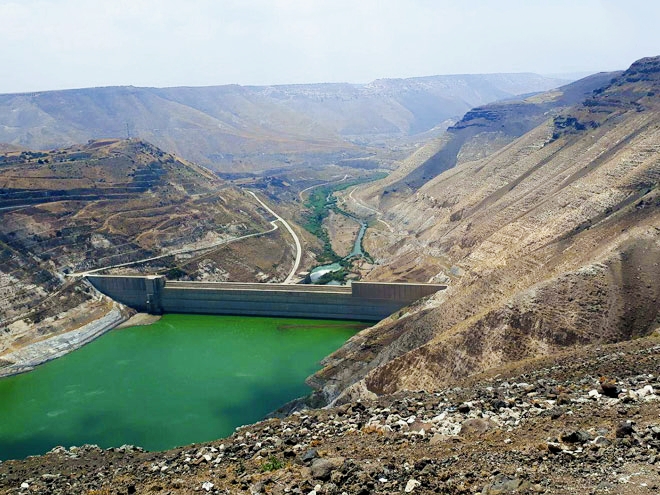In a move that reflects a new beginning for regional cooperation, Jordan's Minister of Water, Raed Abu Al-Saud, revealed a new Syrian-Jordanian agreement to amend the memorandum of understanding regarding the Al-Wehda Dam and the Yarmouk River basin, in the face of challenges of drought and water scarcity in the region.
During a joint press conference in the Jordanian capital, Amman, in the presence of Jordanian Energy Ministers Mohammad Al-Bashir and Saleh Al-Kharabsheh, Abu Al-Saud announced that the Syrian side agreed to halt drilling wells in the southern border areas, which will have a positive impact on the water situation in Jordan, especially amid the continuous decline in the water level of the Al-Wehda Dam located north of the kingdom.
Abu Al-Saud pointed out that the two sides discussed the 1987 water agreement, which granted Jordan the right to receive 200 million cubic meters of Yarmouk water, explaining that the dam has not been filled for years due to the frequent water interruptions and well drilling in southern Syria.
The minister also added that there is a new Syrian-Jordanian cooperation to address the impacts of climate change and drought, emphasizing that this cooperation marks a new beginning after years of stagnation.
* Among the highlights announced during the conference:
_ A preliminary agreement to hold the first meeting of the joint Syrian-Jordanian technical committee on July 8th.
_ Discussion of vital files including: the Yarmouk River, water allocations, the Zedi Basin, the Jordan River, and the Ramtha Basin.
_ Both sides reaffirmed the importance of these files and agreed to continue the technical dialogue.
This Syrian-Jordanian openness comes at a critical time in the region, amidst escalating climate and economic challenges that require regional integration to ensure water and energy security.

